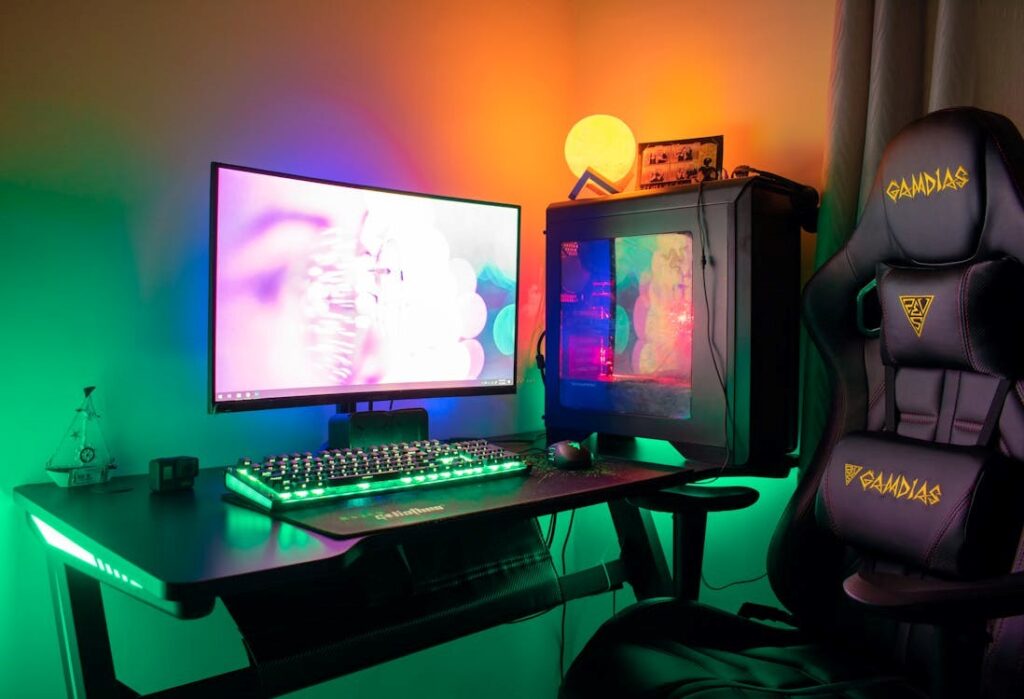A high-performance gaming PC is a dream come true—until it starts acting up. Nothing is more frustrating than sudden crashes, unbearable lag, overheating, or power failures interrupting your gaming sessions.
Before you panic or assume the worst, many of these problems can be fixed with simple troubleshooting steps.
In this guide, we’ll walk you through the most common gaming PC issues and how to fix them like a pro. Whether you’re facing random shutdowns or network problems, these solutions will help get your system back on track.
If the issue persists, you may need professional computer repair in Hamilton to ensure your PC runs smoothly.
1. Gaming PC Crashes or Freezes
If your PC crashes mid-game or freezes unexpectedly, try these steps:
Check for Overheating
Overheating is a major cause of crashes. Use a program like HWMonitor to check your CPU and GPU temperatures. If they exceed 85°C, clean your fans and heatsinks, improve ventilation, and consider applying new thermal paste.
Update Your Drivers
Outdated or faulty drivers can cause system instability. Update your graphics card drivers through NVIDIA GeForce Experience or AMD Radeon Software.
Scan for Malware
Viruses or malware can cause crashes. Run a full system scan using Windows Defender or a trusted antivirus program.
Check for Corrupt Files
If a specific game crashes frequently, verify its files through Steam or the game launcher. Sometimes, corrupted files can cause crashes.
Run a Memory Test
Faulty RAM can lead to random freezes. Use Windows Memory Diagnostic to check for issues. If errors appear, consider replacing the RAM sticks.

2. Lag and Poor Performance
If your gaming experience is choppy or slow, follow these fixes:
Close Unnecessary Programs
Background apps can consume CPU and RAM. Open Task Manager and close any programs using high resources.
Adjust Game Settings
If your frame rates are low, lower the graphics settings in your game. Turning down shadows, anti-aliasing, and resolution can boost performance.
Check Your Internet Connection
For online games, lag can result from a poor internet connection. Restart your router, use a wired Ethernet connection, or consider network installation in Princeton for a more stable setup.
Enable Game Mode
Windows has a built-in Game Mode that prioritizes gaming performance. Enable it under Settings > Gaming > Game Mode.

3. Overheating Issues
If your PC is getting too hot, it can throttle performance and cause long-term damage. Here’s how to keep it cool:
Clean Your PC
Dust buildup restricts airflow. Use compressed air to clean fans, vents, and filters.
Improve Airflow
Make sure your PC has proper ventilation. If needed, reposition your case or add extra cooling fans.
Replace Thermal Paste
Over time, thermal paste on your CPU and GPU dries out, reducing heat transfer. Apply new thermal paste every couple of years.
Monitor Fan Speeds
If your fans aren’t spinning correctly, adjust their settings using BIOS or third-party software.
When to Seek Professional Help
If you’ve tried these troubleshooting steps and your gaming PC still isn’t working, it might be time to seek expert assistance. Hardware issues, complex software conflicts, and system failures can be challenging to fix without proper tools and experience.
At Princeton Computer Repair Service, we specialize in diagnosing and repairing all kinds of gaming PC issues. Whether you need a computer upgrade in Princeton, virus removal in Princeton, or data recovery, our skilled computer technicians can get your system back in top shape.
Don’t let gaming interruptions ruin your experience, reach out to us today for gaming PC repair in Princeton!
